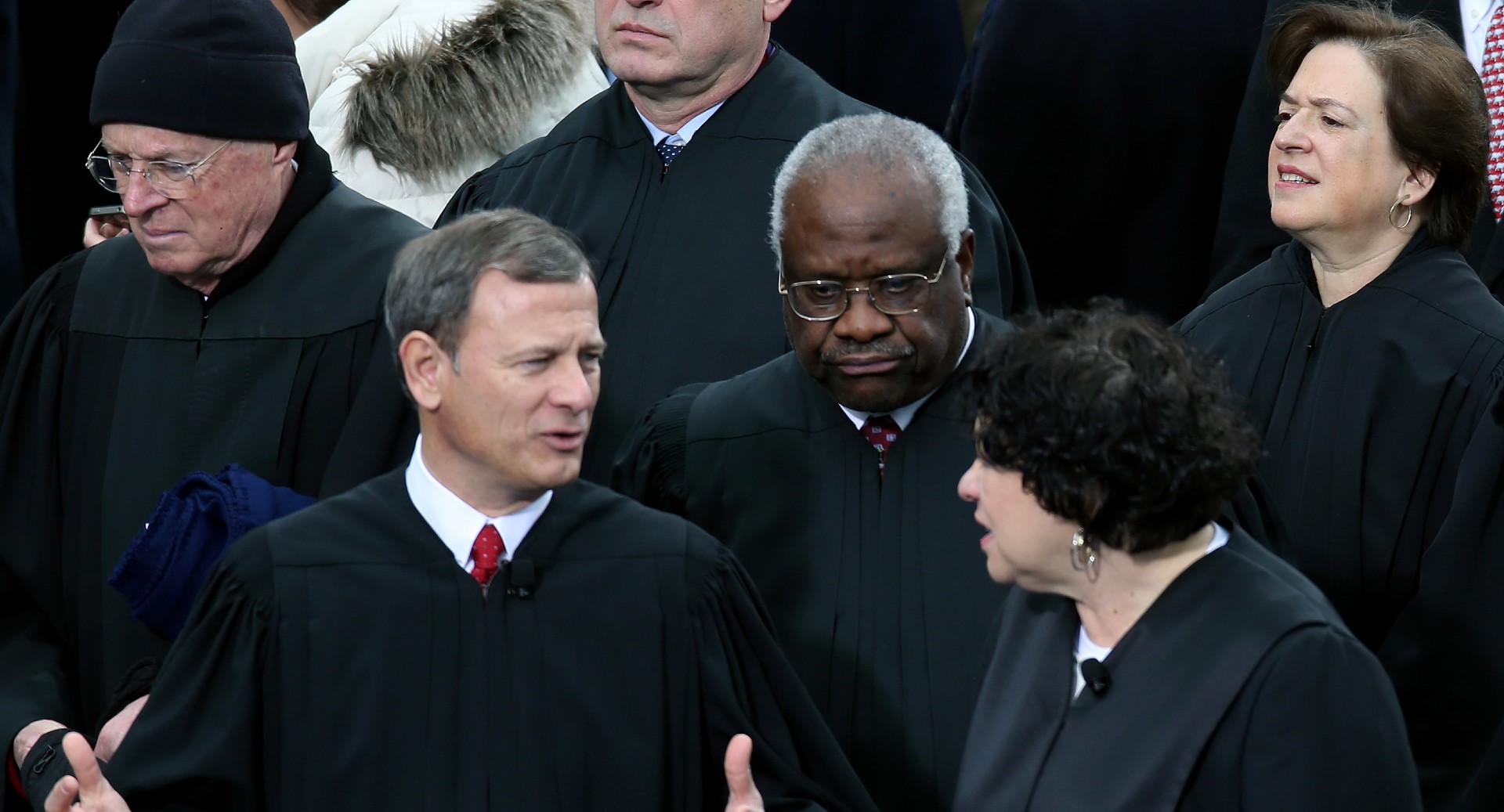OPINION: This article may contain commentary which reflects the author's opinion.
The U.S. Supreme Court has delivered a major ruling in favor of veterans. In the case of Torres v. Texas Department of Public Safety, the court recently ruled 5-4 that states cannot invoke sovereign immunity to block lawsuits by veterans who want to reclaim prior jobs with state employers.
“Upon entering the Union, the States implicitly agreed that their sovereignty would yield to federal policy to build and keep a national military,” Justice Stephen Breyer wrote in the opinion. “States thus gave up their immunity from congressionally authorized suits pursuant to the ‘plan of the Convention,’ as part of ‘the structure of the original Constitution itself.'”
Justice Thomas makes this point in his dissent:
More than two decades ago, this Court found it “difficult to conceive that the Constitution would have been adopted if it had been understood to strip the States of immunity from suit in their own courts and cede to the Federal Government a power to subject nonconsenting States to private suits in these fora.” Alden v. Maine (1999). Accordingly, we held—without qualification—that “the powers delegated to Congress under Article I of the United States Constitution do not include the power to subject nonconsenting States to private suits for damages in state courts.”
No longer. Today, by adopting contrived interpretations of Alden and the recent decision in PennEast Pipeline Co. v. New Jersey (2021), the Court holds that at least two (and perhaps more) Article I “war powers” do, in fact, include “the power to subject nonconsenting States to private suits for damages in state courts,” Alden and that Congress has exercised that power by enacting the Uniformed Services Employment and Reemployment Rights Act of 1994 (USERRA). Alden should have squarely foreclosed that holding.
In October, the Supreme Court agreed to take on another case that could have major ramifications for thousands of veterans.
“The case involves a Navy veteran who believes his disability compensation from the VA should have begun from the date he left the military, not when he filed the paperwork. The Supreme Court’s decision could result in a large number of veterans receiving back pay on their disability compensation, many of whom waited years to file their claims,” Military.com reported.
“Adolfo Arellano is the veteran in the case, and during his years in service from 1977-1981 he was on an aircraft carrier when a large collision occurred. The incident resulted in the deaths and injuries of several of his shipmates. It nearly swept Arellano overboard, leaving him with post-traumatic stress disorder and other mental conditions. 30 years later Arellano filed a claim with the VA and it was approved. They backdated it to the date he filed the paperwork in 2011. But Arellano appealed, arguing that the disability payments should have been made retroactive to his discharge. He says the mental health conditions he developed from the collision prevented him from filing the claim sooner,” the outlet continued
Arellano’s claim was denied by the Court of Appeals for Veterans Claims. He appealed and the Federal Circuit judges split their decision. Now, his case is headed to the Supreme Court.
Arellano’s attorney, James Barney, argued that the ruling has the potential to affect “thousands of current and future veterans.”
“It would apply a more flexible rule that would be to the benefit of potentially thousands of disabled veterans. The equitable tolling doctrine is only supposed to apply in extenuating circumstances, but when you are talking about disabled veterans, there often are extenuating circumstances,” Barney said.
Barney argued that as the equitable tolling doctrine stands now, veterans have no recourse for seeking a waiver to the one-year deadline, “no matter how compelling the individual circumstances.”
“This would at least give these veterans an opportunity to ask the court to toll these deadlines because, as of right now, the veteran has zero chance of asking for [a waiver],” Barney said.
He added that each year thousands of cases are petitioned to the Supreme Court, but roughly 80 get accepted by the high court.
“It’s an unfortunate reality that many members of the armed forces face a difficult path once discharged from the service,” Arellano’s lawyers stated in their petition to the Supreme Court. “Indeed, the sad irony is that the very illnesses the veterans’ benefits system is designed to address, such as PTSD, are often the ones that cause veterans to miss the one-year deadline.”
